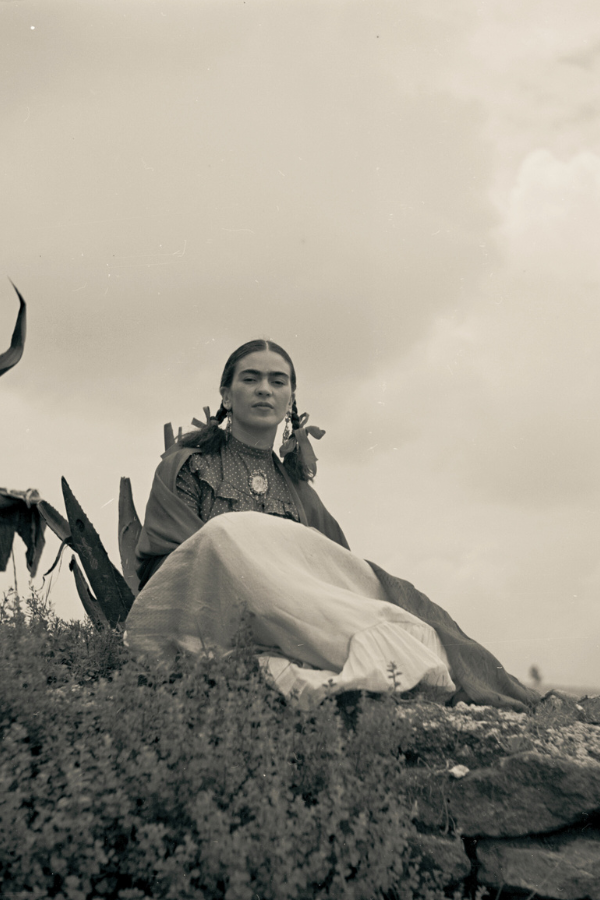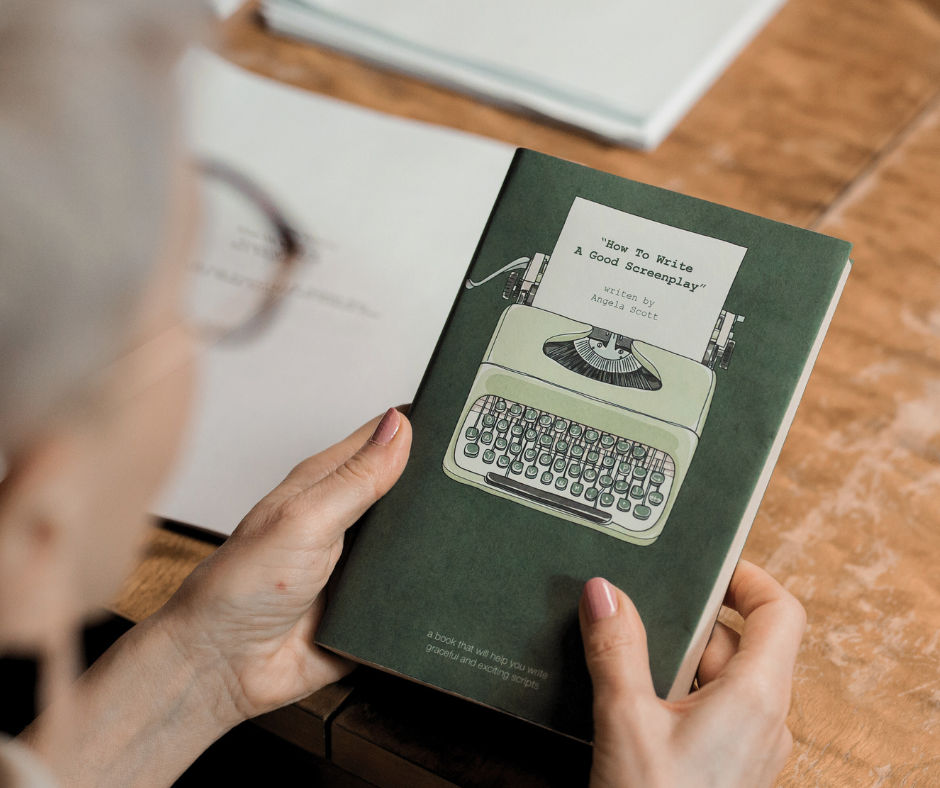
Honoring the Last Decade of Pulitzer Prize for Poetry Winners
Summary
The Pulitzer Prize for Poetry, established in 1917 by Joseph Pulitzer, celebrates outstanding American poets annually. It reflects the evolving themes and craftsmanship of poetry while capturing the spirit of the times. This article explores the last decade’s winners, highlighting their contributions to literature and their portrayal of contemporary American culture and society.
Reflection Questions
- How do the themes and styles of Pulitzer Prize-winning poetry collections reflect the experiences and perspectives of women in society?
- How do the experiences and identities of women poets intersect with other aspects of their lives, such as race, ethnicity, sexuality, and socioeconomic background?
- What impact do you think the recognition of female poets through prestigious awards like the Pulitzer Prize has on the broader literary landscape and the representation of women in literature?
Journal Prompt
Reflect on the representation of women in literature, both historically and in contemporary poetry. How have female poets challenged stereotypes and reshaped narratives through their work? What role do you see yourself playing in this ongoing dialogue?
The Pulitzer Prize for Poetry—a prestigious accolade in the literary community—is conferred annually to a distinguished volume of original verse by an American poet—offering not only a testament to literary excellence but also a lens through which the shifting contours of American culture and society can be discerned. Established in 1917 as part of a bequest from journalist Joseph Pulitzer, the prize has evolved in its criteria—currently emphasizing the aesthetic and thematic embodiment of the age while demanding rigor in craftsmanship and a substantive contribution to the art of poetry. This honor not only elevates the work of the recipient but also acts as a barometer for the prevailing cultural and societal zeitgeist—encapsulating the nuanced and often tumultuous tenor of its era through poetic expression. Read on to learn about the last ten recipients.
The Role of the Pulitzer in Shaping Contemporary Poetry

The Pulitzer Prize—as one of the most coveted recognitions in American letters—undeniably exerts a significant influence on the landscape of contemporary poetry. Its selection criteria and the works it acknowledges often set a benchmark for literary excellence—subtly steering the genre’s trends.
The awarded collections frequently become a reference point for both established and aspiring poets—potentially guiding the thematic and stylistic currents of American poetry. Moreover—by highlighting specific poetic achievements—the Pulitzer can precipitate a shift towards certain narratives or forms—underscoring the versatility of poetry as a medium to grapple with the complexities of the human experience.
Previous winners of the Pulitzer Prize include Robert Penn Warren, Robert Hass, James Schuyler, James Wright, James Merrill, Robert Frost, William Meredith, Gary Snyder, Sylvia Plath, Richard Wilbur, Rita Dove, Philip Schultz, Ann Sexton, and Grace Notes.
The Pulitzer’s Impact on Poets’ Careers and Readership

Additionally, the cachet associated with Pulitzer Prizes has a profound impact on the careers of its recipients. Winning the Pulitzer often marks a pivotal moment in a poet’s professional life—conferring a level of prestige that can considerably broaden their readership and open doors to new opportunities,—such as academic positions, speaking engagements, and heightened demand for their work.
For poets, this accolade can mean elevated sales and visibility—with the Pulitzer acting as a literary imprimatur that assures readers of the work’s quality and significance. Several winners have gone on to win the National Book Award and other significant prizes.
The ripple effects of such recognition extend beyond the individual to influence readership patterns within the broader public sphere. As the Pulitzer Prize-winning collections gain prominence in bookstores, libraries, and classrooms, they attract a wider audience—contributing to the shaping of the public’s literary tastes and engagement with poetry.
This enhanced readership not only fosters a greater appreciation for the art form but also catalyzes a more vibrant, communal exchange of ideas—ensuring that poetry remains a vital, dynamic force in the cultural fabric.
Honoring the Last Decade of Pulitzer Prize Poetry Winners

The Pulitzer Prize for Poetry is awarded for a distinguished volume of original verse by an American author. Below are the recipients and their winning volumes for the last ten years.
2014: Vijay Seshadri for “3 Sections”
In 2014, the Pulitzer Prize for Poetry was awarded to Vijay Seshadri for his collection “3 Sections”—a compendium that probes the intricate layers of identity and the stream of consciousness. Seshadri’s work in “3 Sections” maneuvers through the complexities of selfhood and cognitive experience—employing a synthesis of narrative lucidity and lyrical intensity to navigate the intersection of personal history and collective existence.
Fuel your creative fire & be a part of a supportive community that values how you love to live.
subscribe to our newsletter
*please check your Spam folder for the latest DesignDash Magazine issue immediately after subscription

His verse stands as a significant contribution to contemporary American poetry—marked by intellectual depth and a nuanced understanding of the human condition. Seshadri’s poetry—exemplified by this Pulitzer-winning volume—cements his status as a pivotal figure whose work resonates with the existential queries and the fragmented reality characteristic of the modern era.
2015: Gregory Pardlo for “Digest”
In 2015, Gregory Pardlo was honored with the Pulitzer Prize for Poetry for “Digest”—a collection that showcases his innovative poetic style and acute reflections on modern life. Pardlo’s verse is characterized by its intellectual breadth and a diverse range of cultural references—weaving together an intricate tapestry that examines the multifaceted nature of contemporary society.
The masterful collection “Digest” employs a rich palette of forms, from abecedarians to prose poems—showcasing Pardlo’s versatility and his ability to juxtapose personal narratives with broader social commentary. His work interrogates notions of identity, history, and the collective memory.
“Digest” chronicles American culture and serves as a poignant commentary on the American experience and securing Pardlo’s place as a fresh and resonant voice in the landscape of modern American poetry.
2016: Peter Balakian for “Ozone Journal”
The 2016 Pulitzer Prize for Poetry was awarded to Peter Balakian for “Ozone Journal”—a volume that captures the layers of historical trauma and memory through a deeply personal lens. In this work, Balakian interlaces narratives of the past with the urgent concerns of the present—such as the eponymous “Ozone Journal,” which threads the recollections of excavating Armenian genocide victims’ bones with vignettes of life in the fast-paced modern world.
The collection serves not only as an act of remembrance but also as a meditation on the disjunctions of time and the ways in which personal and collective histories collide. “Ozone Journal” confirms Balakian’s esteemed status in American poetry—distinguished by his melding of public and private discourse in a manner that is both erudite and deeply affecting.
2017: Tyehimba Jess for “Olio”
The Pulitzer Prize for Poetry in 2017 was conferred upon Tyehimba Jess for “Olio”—a daring and inventive collection that delves into the African American experience through the lens of performance, music, and the body. Jess’s work distinguishes itself with a structure that challenges the conventions of form—comprising a series of syncopated narratives that give voice to the performers of the minstrel era, reimagining the lives of historically marginalized figures.
“Olio” is not only a literary work but also a visual and oral experience, inviting engagement through its physically interactive design—pages that can be folded and unfolded into new poems, thus reflecting the book’s theme of reconstruction. Jess’s craftsmanship in “Olio” deftly interweaves sonnet, song, and narrative—cementing his role as an innovative force in the narrative of contemporary American poetry and expanding the possibilities of what a poetry collection can accomplish.
2018: Frank Bidart for “Half-light: Collected Poems 1965-2016”
The 2018 Pulitzer Prize for Poetry was awarded to Frank Bidart for “Half-light: Collected Poems 1965-2016″—a volume that encompasses over fifty years of the poet’s oeuvre. This comprehensive collection crystallizes Bidart’s enduring themes of desire, the human condition, and the quest for personal truth.
His work, known for its intense emotional honesty and meticulous craft, explores the intricacies of identity and the complexities inherent in the self’s relationship with society. “Half-light” offers readers a profound retrospective of Bidart’s career—highlighting the poet’s mastery over the form and his capacity to distill profound philosophical inquiry into the concise medium of poetry.
The award celebrates Bidart’s distinguished voice in American literature—marking the indelible impact of his expansive and reflective body of work on the canon of contemporary poetry.
2019: Forrest Gander for “Be With”
In 2019, the Pulitzer Prize for Poetry was bestowed upon Forrest Gander for “Be With”—a collection that addresses the sharp pangs of loss and the intricate mappings of grief. Gander’s verse traverses the terrain of bereavement with linguistic precision and emotional acuity—engaging with the absence left by a departed beloved.
The poems in “Be With” are crafted with an incisive use of language that captures the ineffable qualities of human mourning and longing. Through his poignant and sparse lyrical style, Gander examines the spaces between people—the physical and psychic distances—as well as the profound connections that bind individuals together.
His contribution to the field with this volume is a testament to the power of poetry to articulate the most intimate and universal of human experiences—solidifying Gander’s place in the contemporary poetic tradition.
2020: Jericho Brown for “The Tradition”
In 2020, Jericho Brown was honored with the Pulitzer Prize for Poetry for “The Tradition”—a collection that interrogates the complexities of personal identity against the backdrop of a turbulent social and political landscape. Brown’s verse is characterized by a blend of lyrical innovation and the exploration of themes such as race, masculinity, and the body.
Through forms like the duplex—a style he invented that combines the ghazal, the sonnet, and the blues—”The Tradition” challenges and redefines the boundaries of traditional poetry. The work is a powerful testament to Brown’s ability to craft a language that is at once intimate and commanding—bringing to the fore an urgent voice that demands attention.
“The Tradition” cements Brown’s status as a critical force in modern poetry—offering a profound commentary on the violence of our times while simultaneously seeking the possibilities of hope and renewal.
2021: Natalie Diaz for “Postcolonial Love Poem”
The 2021 Pulitzer Prize for Poetry was awarded to Natalie Diaz for her work “Postcolonial Love Poem”—a collection that is a fervent exploration of identity, love, and the lingering effects of colonialism on indigenous people and land. Diaz’s poetry is infused with a potent blend of political activism and lyrical beauty, as she articulates the desires and struggles of bodies caught in the crossfire of history’s narratives.
The collection is notable for its deft language that navigates the intersections of gender, sexuality, and cultural heritage—revealing the intimacies of the heart against the larger canvas of cultural survival and defiance. “Postcolonial Love Poem” asserts Diaz’s prominent voice in contemporary American poetry, distinguished by its emotional depth, its craft in melding the personal with the universal, and its unwavering gaze upon the often unspoken truths of a postcolonial reality.
2022: Diane Seuss for “frank: sonnets”
The Pulitzer Prize for Poetry in 2022 was awarded to Diane Seuss for “frank: sonnets”—a collection that revitalizes the sonnet form with a raw and candid exploration of life’s multifaceted experiences. Seuss’s work stands out for its unvarnished honesty—grappling with themes of love, loss, class, and the passage of time through the precise and often surprising lens of the sonnet structure.
The collection showcases Seuss’s skill in distilling vast and complex emotions into the tight confines of the sonnet form—combining autobiographical elements with a broader cultural commentary. “frank: sonnets” is a testament to Seuss’s innovation within poetic form, her ability to navigate between reverence and reinvention of tradition, and her commitment to probing the depths of personal narrative.
With this volume, Seuss affirms her voice in the contemporary poetic discourse—marked by a fearless approach to form and content.
2023: Professor Carl Phillips for “Then The War: And Selected Poems, 2007-2020”
The winner of this year’s prize for poetry, Carl Phillips is a respected American writer, scholar, and poet. His work frequently explores themes of intimacy, identity, and the interplay between power and tenderness. His writing is known for its emotional depth, reflective quality, and lyrical beauty, often delving into personal and philosophical territories.
Regarding the collection “Then The War: And Selected Poems, 2007-2020,” Phillips’s poetry from this timeframe is characterized by its exploration of desire, the human body, nature, and classical allusions. New and selected poems from this period use such themes to probe larger questions about life, morality, and the interplay between civilization and the wild.
Carl Phillips has been a finalist for the Pulitzer Prize and has received numerous other honors—including awards from the Guggenheim Foundation and the Academy of American Poets.
Design Dash
Join us in designing a life you love.
These Are the Best Interior Design Programs in the Midwest
Learn all about the 5 top CIDA-accredited interior design programs in the Midwest, all with strong cultures, job placement, and NCIDQ prep.
Soft Geometry: The Return of Rounded Forms at 2025 Design Fairs
Curves are back. From Milan to High Point, 2025 design fairs prove soft geometry is shaping furniture, lighting, and interiors in powerful, emotional ways.
High Point Market Sponsors DesignDash Ahead of October 2025 Event
DesignDash announces High Point Market as its newest sponsor ahead of the October 2025 event. Registration for Fall Market opens soon.
SHIFT Your Focus at the 2025 Chicago Architectural Biennial
From collective housing to material innovation, SHIFT: The 2025 Chicago Architecture Biennial, curator Florencia Rodriguez has a fresh lens.
Seven Spaces That Capture the Japandi Interior Design Aesthetic
Explore seven stunning interiors that exemplify Japandi design, that fusion of Japanese minimalism and Scandinavian warmth we adore.
Mark Your Calendar & Book Your Flight for Salone del Mobile 2026
Don’t miss Salone del Mobile 2026 from April 21st through 26th at Fiera Milano Rho.








